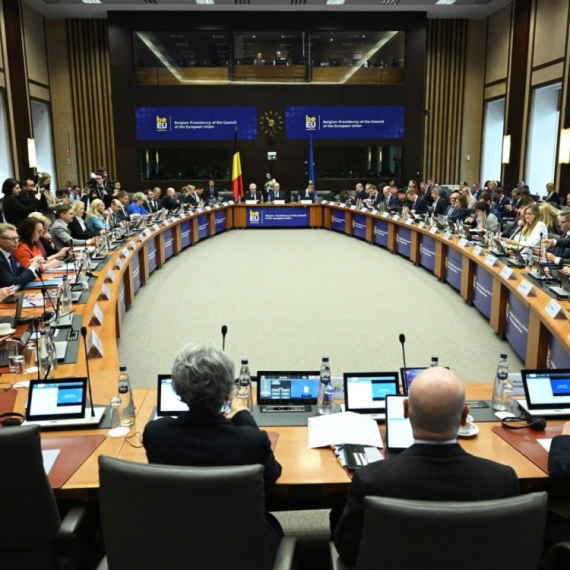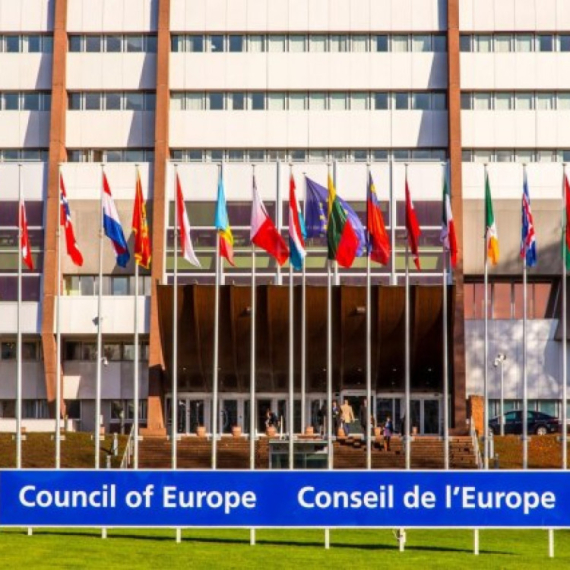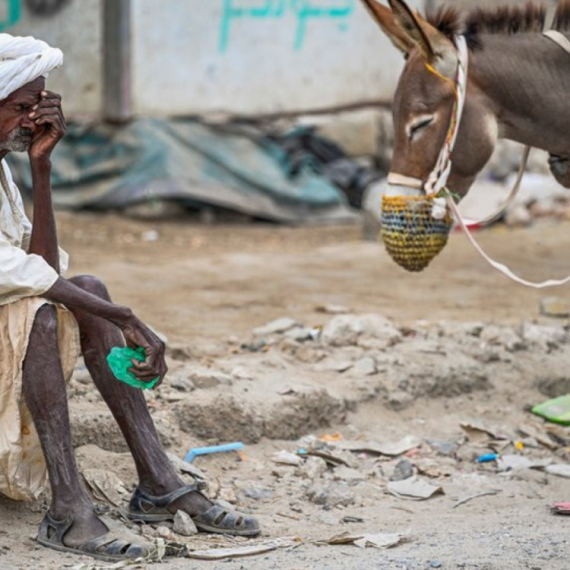Serbia has "lowest growth, highest budget deficit" in region
IMF's resident representative in Serbia Bogdan Lissovolik has said that the country's economic performance last year was "poor".
Wednesday, 16.01.2013.
13:56

BELGRADE IMF's resident representative in Serbia Bogdan Lissovolik has said that the country's economic performance last year was "poor". Serbia must launch reforms designed to boost economic growth and reduce debt, he was quoted as saying by Beta. Serbia has "lowest growth, highest budget deficit" in region At the presentation of the latest issue of the Belgrade Economics Institute's macroeconomic trend magazine, Lissovolik warned that Serbia's public debt, estimated at over 60 percent of the gross domestic product, had reached critical levels for a developing country. He also cited estimates that Serbia's GDP had declined two percent in 2012. According to him, Serbia was a worrying exception when compared to other countries in the region, because it had the lowest growth and highest budget deficit last year. The IMF official said it was encouraging that the 2013 budget contains urgently needed fiscal consolidation measures, but that its structure could have been better in many respects, because it does not include measures such as rationalization of subsidies and limits on financing provided to local administrations. Lissovolik said the goal to reduce the budget deficit to 3.6 percent of the GDP was too ambitious, and described as excessively optimistic the projected 2014 and 2015 GDP growth rates of 3.5 percent and four percent respectively. According to Lissovolik, Serbia's key problems are not of a short-term nature, rather they are fundamental and structural, which means that structural reforms are needed in four areas - the labor market, pension system, public companies and the business environment. The effect of reforms is greatest when they are conducted simultaneously, he noted, adding that Serbia had made progress in the last two areas, but not in the labor market and pension system. According to him an IMF mission would visit Serbia in the coming weeks, after fiscal data for Serbia were analyzed. "The IMF wants to analyze the 2012 fiscal data for Serbia and define the objectives of the mission's next visit with the authorities in Serbia accordingly," Lissovolik explained. He was unable to specify the date of the mission's arrival. The delegation is expected late in January or in February. The last visit of an IMF delegation to Belgrade was on Nov. 20. Beta Tanjug
Serbia has "lowest growth, highest budget deficit" in region
At the presentation of the latest issue of the Belgrade Economics Institute's macroeconomic trend magazine, Lissovolik warned that Serbia's public debt, estimated at over 60 percent of the gross domestic product, had reached critical levels for a developing country.He also cited estimates that Serbia's GDP had declined two percent in 2012.
According to him, Serbia was a worrying exception when compared to other countries in the region, because it had the lowest growth and highest budget deficit last year.
The IMF official said it was encouraging that the 2013 budget contains urgently needed fiscal consolidation measures, but that its structure could have been better in many respects, because it does not include measures such as rationalization of subsidies and limits on financing provided to local administrations.
Lissovolik said the goal to reduce the budget deficit to 3.6 percent of the GDP was too ambitious, and described as excessively optimistic the projected 2014 and 2015 GDP growth rates of 3.5 percent and four percent respectively.
According to Lissovolik, Serbia's key problems are not of a short-term nature, rather they are fundamental and structural, which means that structural reforms are needed in four areas - the labor market, pension system, public companies and the business environment.
The effect of reforms is greatest when they are conducted simultaneously, he noted, adding that Serbia had made progress in the last two areas, but not in the labor market and pension system.
According to him an IMF mission would visit Serbia in the coming weeks, after fiscal data for Serbia were analyzed.
"The IMF wants to analyze the 2012 fiscal data for Serbia and define the objectives of the mission's next visit with the authorities in Serbia accordingly," Lissovolik explained.
He was unable to specify the date of the mission's arrival. The delegation is expected late in January or in February. The last visit of an IMF delegation to Belgrade was on Nov. 20.




































Komentari 18
Pogledaj komentare